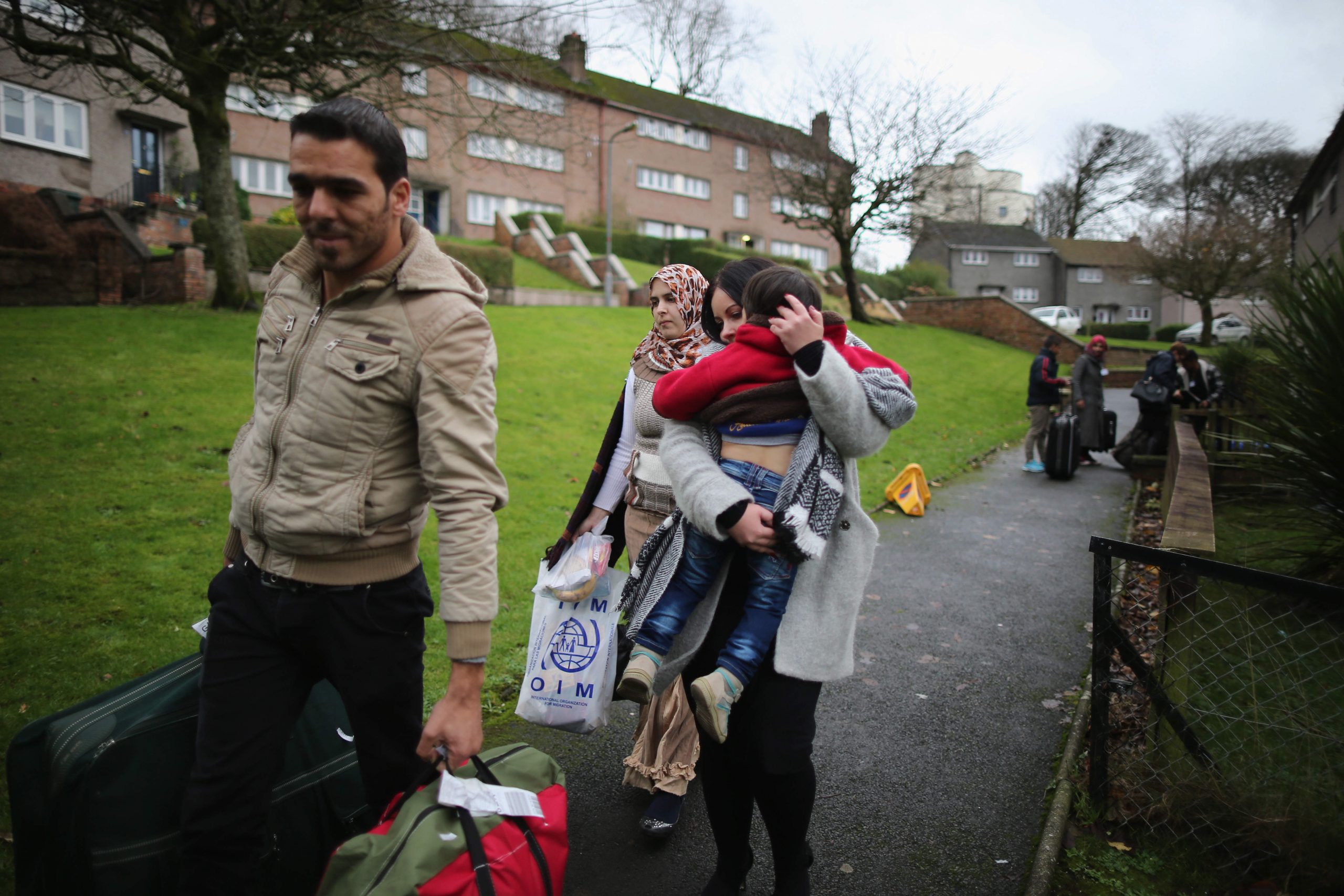
The ferry to the Isle of Bute, a beautiful but remote island off the west coast of Scotland, smells of salt and vinegar crisps. Bored passengers lounge about leafing through newspapers while the ferry drifts over a choppy grey sea.
I try to imagine the atmosphere one month ago, when nine Syrian refugee families rode this boat towards their new lives. The crossing from Gourock to Bute was the last leg of a journey that began at an over-crowded refugee camp in Lebanon and ended in vacant houses around the island’s main town of Rothesay.
The families were brought over as part of David Cameron’s promise to resettle 1,000 displaced Syrians in the UK by Christmas. They’ve been given five years’ humanitarian protection status, free housing and social welfare, as well as permission to work from the day they arrive. Some, suffering from post-traumatic shock, are also being provided with counselling support.
Bute, which has been battered by gales and heavy rain this winter, seems an unlikely place to resettle traumatised families from the Middle East, but it has one great advantage that much of the UK lacks – there’s space and spare housing. Local counsellor Isabel Strong, who first suggested bringing Syrian refugees here, said, “we have room in Rothesay, and these people need safe homes”.
And Bute’s declining population could do with a healthy boost. Once known as the “Madeira” of Scotland, the island’s glory has faded rather since its 1970s heyday. Cheap international flights have lured British holidayers away to sunnier climes and the lack of opportunities has driven most young people to flee to the mainland, leaving behind empty houses and an ageing population.
Scottish government officials – such as Michael Russell – have speculated that the arrival of fit young people looking for work could be a godsend to Bute’s declining economy. But will 28 Syrian adults on an island of 6,300 really be able to have much impact on it’s financial state? Probably not, in which case there aren’t many prospects for them here.
Wandering about blustery Rothesay I bump into Yana, Sayid and baby Hamid. They’re busy inspecting the world food section in the local Londis, which has been expanded in their honour. Yana, her face framed by a tight white headscarf, has sparky eyes, clear diction and a degree in English. I hand the Syrian sweets that I brought up from London to crying baby Hamid whose sobs cease as he starts shaking the tin.
Yana thanks me, and begins to answer my questions. Despite the bad weather they’re settling in well – she’s grateful to have a house with good heating. Her family come from a village near Damascus that was badly bombed, and they had been living in a refugee camp for two years. No – they haven’t thought much about jobs yet, they’ve been too busy acclimatising.
When a large, bearded Scot walks into the shop and acknowledges them with a delighted, “As-salam alaykom” Yana’s husband reciprocates enthusiastically, seeming moved by the effort.
Sadly not everyone on the island is so delighted about their new neighbours. Disgruntled murmurings of “we should look after our own first” circulate a popular local pub when I ask about the Syrian families. “We have enough problems of our own without bringing them here,” I’m told by a ruddy faced construction worker called David.
Yet in general the mood is positive. Many have rallied round to make the refugees feel welcome with donations of food and warm clothes. A makeshift mosque has been improvised in one of the local churches, the Co-op butcher now supplies halal meat, and the owners of Londis have ordered in pumpkin seeds after a special request from the new arrivals.
But I worry it’s enough. As I say goodbye to Bute from the gusty deck of the ferry, I have a sinking feeling about the rather dim prospects for Yana and the other refugees. They’re bound to Bute for half a decade as a condition for government housing. If they can’t find any jobs here they’ll be forced to survive on their welfare money which is not only demotivating but will also foster resentment among the locals.
Was it really a clever move to put them here just because so many people of working age have gone and left behind empty houses? But then again, their grey stone terraced homes are at least sturdy and safe – a far cry from the makeshift refugee camp they left behind in Lebanon.



